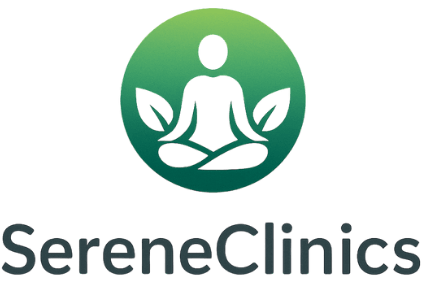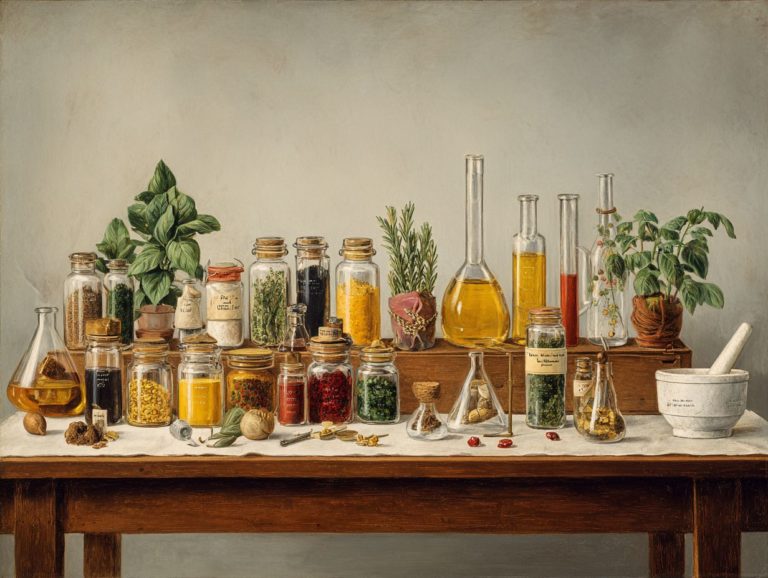Herbal Medicine in Holistic Health: Benefits and Considerations
Learn about how herbal medicine can help improve health by using plants and their active ingredients instead of regular drugs. When looking at the benefits of these treatments, you should think about possible side effects and talk to your doctor. This article will show you the benefits, important factors, and methods to successfully use herbal medicines in your health plan, helping you take a balanced approach to your well-being.
Key Takeaways:
Contents
- 1 Herbal Medicine Usage Statistics
- 1.1 Herbal Medicine Use Among US Adults: Herbal Medicine Usage by Demographics
- 1.2 Herbal Medicine Use Among US Adults: Herbal Medicine Use by Health Conditions
- 1.3 Herbal Medicine Use Among US Adults: Herbal and Conventional Medicine Overlap
- 1.4 Herbal Medicine Use Among US Adults: Herbal Medicine Market
- 1.5 Historical Context
- 2 Principles of Holistic Health
- 3 Benefits of Herbal Medicine
- 4 Common Herbs Used in Holistic Health
- 5 Considerations When Using Herbal Medicine
- 6 Combining Herbal Medicine with Other Natural Health Methods
- 7 Research and Evidence on Herbal Medicine
- 8 Frequently Asked Questions
- 8.1 What is herbal medicine and how does it connect to overall health?
- 8.2 What are the benefits of using herbal medicine in a complete health plan?
- 8.3 What are some common types of herbal medicine used in natural health care?
- 8.4 What factors should be considered when using herbal medicine in a complete health plan?
- 8.5 Can herbal medicine be used as a standalone treatment for health conditions?
- 8.6 Are there possible side effects or dangers when using herbal medicine in natural health care?
Definition and Overview
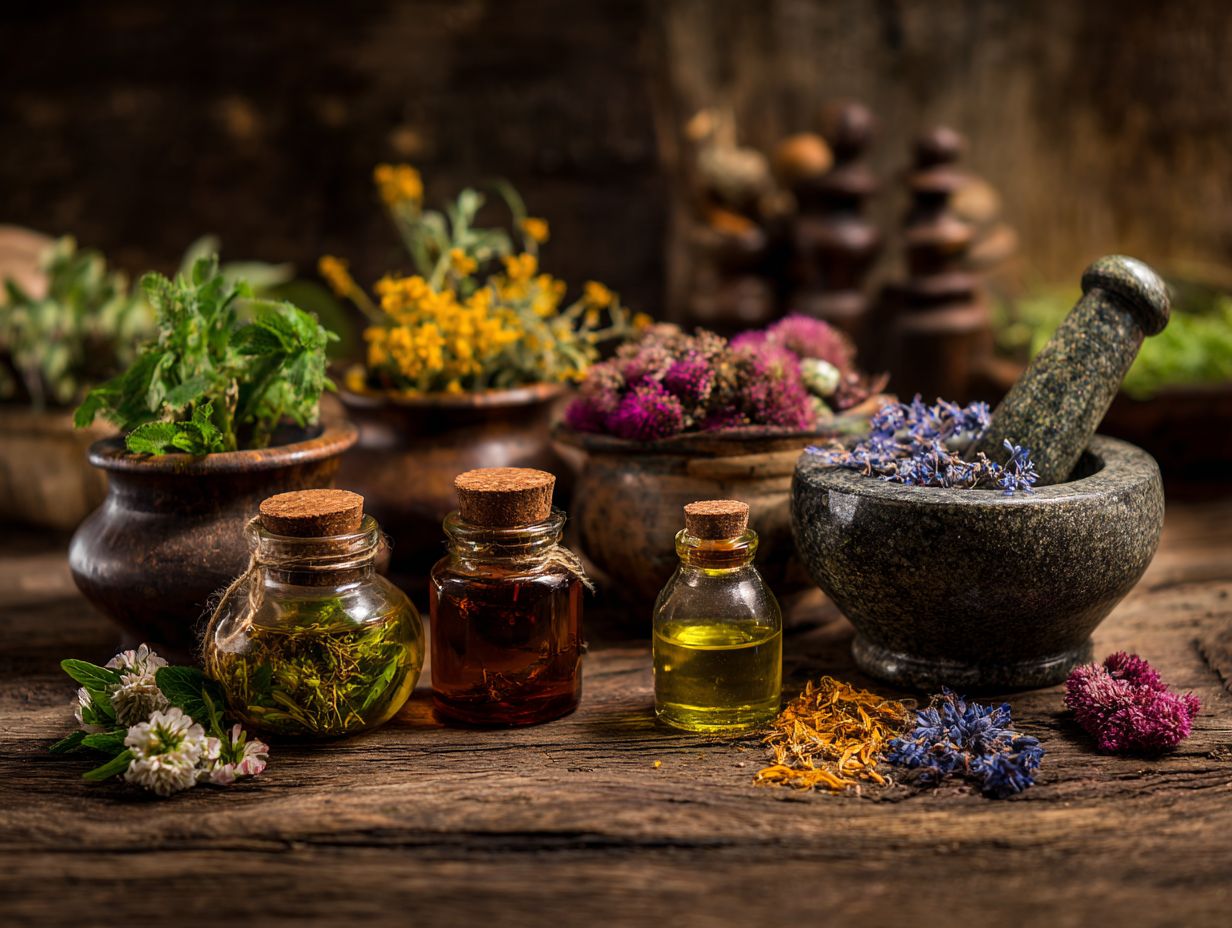
Herbal medicine uses substances from plants to improve health, with more than 80% of the world’s people depending on these remedies as their main healthcare option.
This ancient practice has gained traction in modern healthcare, driven by growing interest in natural treatments. For example, more than 29% of American adults have used herbal products, with echinacea for colds and ginger for digestive issues being popular choices.
Tools like herbalist certification programs and online resources, including databases like HerbalGram, provide essential knowledge for both practitioners and enthusiasts. This aligns with findings from the World Health Organization, which highlights the global importance and integration of traditional medicine. For those interested in exploring more comprehensive systems, Traditional Chinese Medicine offers a deep dive into holistic practices that have been revered for centuries.
The global herbal market is projected to reach $550 billion by 2025, underscoring its significance in health ideologies worldwide.
Herbal Medicine Usage Statistics
Herbal Medicine Usage Statistics
Complementary and Alternative Medicine (CAM) is increasingly being explored for its potential benefits alongside conventional treatments. For those interested in a comprehensive overview, this analysis by the National Cancer Institute covers the full spectrum of CAM treatments and their effectiveness.
Herbal Medicine Use Among US Adults: Herbal Medicine Usage by Demographics
Herbal Medicine Use Among US Adults: Herbal Medicine Use by Health Conditions
Herbal Medicine Use Among US Adults: Herbal and Conventional Medicine Overlap
Herbal Medicine Use Among US Adults: Herbal Medicine Market
The data from the Herbal Medicine Usage Statistics offers a detailed look at how US adults use herbal medicine, broken down by age groups, health issues, how it is used alongside regular medicine, and market expansion. This report shows that more people are using herbal medicine in today’s healthcare.
Herbal Medicine Use Among US Adults sheds light on various demographic factors. The overall usage rate stands at 35%, indicating a significant portion of the population relies on herbal remedies. Among those with education higher than high school, the usage rate increases slightly to 37%, suggesting that education level may influence the likelihood of using herbal medicine. The data reveals a marked gender disparity, with 71% of users being female, highlighting a stronger preference or trust in herbal medicine among women. Additionally, 81% of users are White, and 82% have insurance coverage, indicating a correlation between insurance coverage and herbal medicine usage.
Herbal Medicine Use by Health Conditions illustrates that individuals with specific health issues are more inclined to use herbal remedies. For instance, 48.7% of stroke patients use herbal medicine, followed by 43.1% of cancer patients, and 43% of arthritis patients. Similarly, 41.4% of individuals with breathing problems and 40.9% of those with obesity also turn to herbal treatments. These figures suggest that herbal medicine is often employed as a complementary therapy to manage chronic health conditions.
Herbal and Conventional Medicine Overlap data indicates a significant intersection between herbal and conventional medicine users. 38% of herbal medicine users also take prescription medications, while 42% use over-the-counter (OTC) medications. Furthermore, 43% Many people who use herbal medicine buy their products from mail-order pharmacies, which shows they are combining different health care choices.
Herbal Medicine Market statistics reflect the economic aspect of the industry. The herbal product market experienced a 4% growth in sales in 2011, illustrating a steady increase in consumer demand. By 2013, herbal product sales reached $6 billion, underscoring the substantial economic footprint of the herbal medicine market.
In summary, the Herbal Medicine Usage Statistics data reveals the widespread and diverse use of herbal medicine across different demographics and health conditions. The overlap with conventional medicine and the significant market growth further emphasize the importance and integration of herbal remedies in contemporary healthcare practices.
Historical Context
Herbal medicine boasts a rich history dating back thousands of years, with documented use in ancient civilizations such as Egypt, China, and Greece.
In ancient Egypt, herbs like garlic were used for their medicinal properties, while Traditional Chinese Medicine (TCM) has relied on Ginseng for energy and immune support for centuries.
Today’s applications continue this tradition; for example, Echinacea is commonly used to strengthen the immune system.
Herbalists blend age-old methods with new scientific discoveries, using tools like herbal databases and clinical research to improve mixtures, making sure herbs like Ashwagandha and Turmeric are carefully included in updated health plans.
Principles of Holistic Health
Holistic health looks at the body, mind, and spirit as linked, focusing on the need to balance all parts of life to stay healthy (our principles and practices of homeopathy provide a comprehensive understanding of this balanced approach).
Definition of Holistic Health
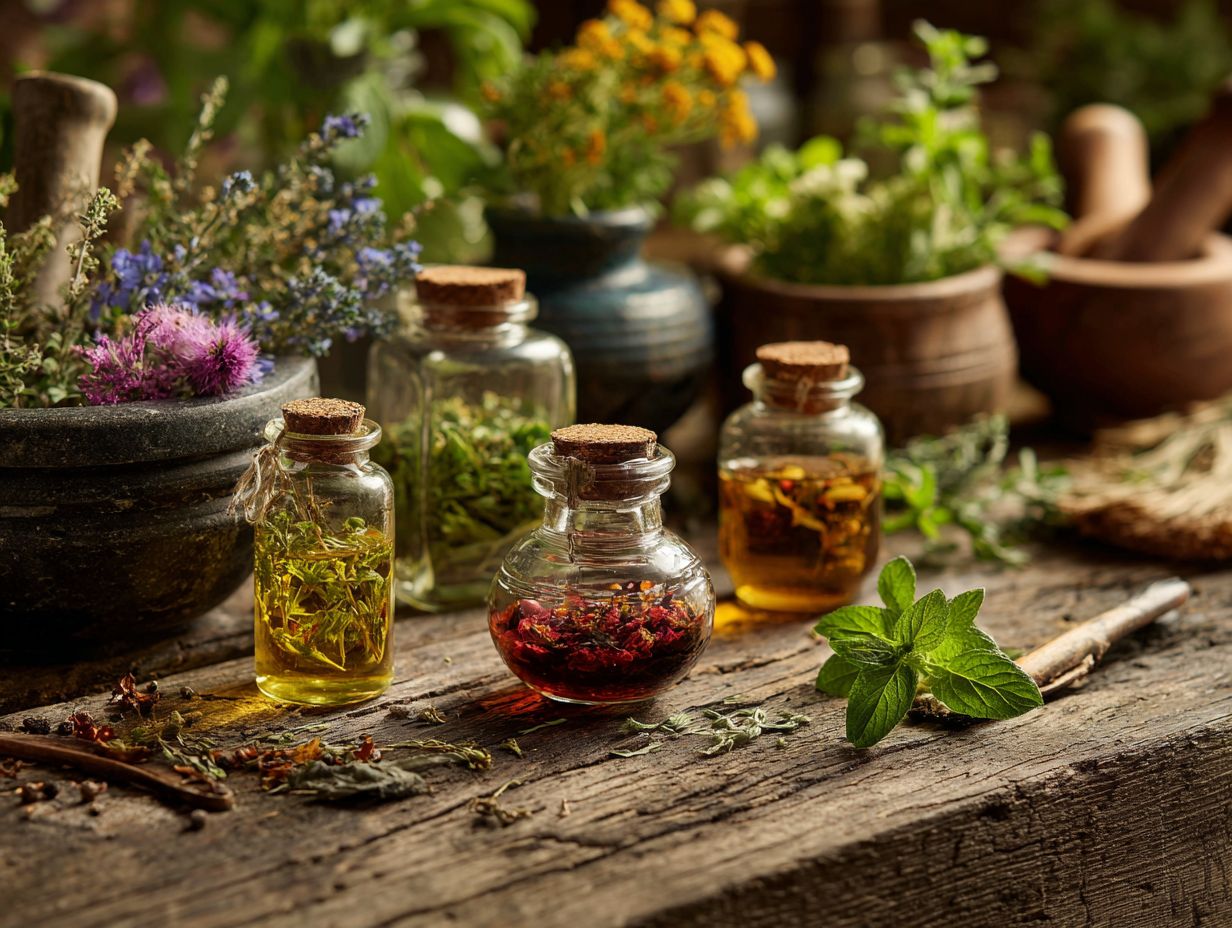
Good health means taking care of your whole self. This includes your mind, emotions, and body, all of which are important for a full life.
This approach emphasizes the interconnectedness of these components, suggesting that true well-being is achieved through balanced practices.
For instance, practicing mindfulness meditation can improve emotional strength, and regular exercise benefits both mental focus and physical health.
Herbal medicine is important by providing natural treatments, like chamomile for anxiety and ginger for digestion.
By combining these elements, individuals can create a personalized health plan that covers all aspects of their wellness, resulting in improved health outcomes and a better quality of life.
Importance of Balance and Harmony
Finding a good balance in life is important. Research indicates that people who follow balanced health practices often feel better and experience less stress.
To develop this in daily life, try mindfulness activities like meditation or yoga, which can improve mental focus and emotional balance.
Integrating herbal options, such as chamomile for relaxation or ashwagandha for stress relief, can further promote a sense of calm.
Try to have daily habits that involve eating well, exercising regularly, and getting enough sleep, which are important for keeping your body and mind healthy.
Spending 10 minutes on deep breathing or having herbal tea instead of coffee can help maintain this balance.
Benefits of Herbal Medicine
Herbal medicine offers several benefits, enhancing physical health and supporting mental and emotional well-being, making it a useful addition to overall health. For those new to this practice, understanding the basics of using herbal remedies safely can be essential-our Beginner’s Guide to Herbal Medicine provides valuable insights for getting started.
Physical Health Benefits
Studies indicate that certain herbs, like Elderberry and Turmeric, can significantly reduce symptoms of common ailments, showcasing herbal medicine’s powerful impact on physical health.
Elderberry, for instance, is known to reduce the duration of cold symptoms by up to 50% if taken within 48 hours of the onset. Consider using a daily supplement or elderberry syrup.
Turmeric, with its active compound curcumin, can be added to meals or taken as a supplement to help reduce inflammation and improve joint health. For optimal absorption, combine it with black pepper.
Ginger tea may help alleviate nausea and improve digestion; steep fresh ginger in hot water for a soothing drink. Start with two cups weekly to see benefits.
Mental and Emotional Benefits
Studies suggest that herbs such as Valerian and St. John’s Wort can help reduce anxiety and depression, indicating their possible benefits for mental health.
User experiences and studies reveal that Valerian promotes restful sleep, reducing anxiety levels.
Meanwhile, St. John’s Wort is often used to improve mood, with clinical trials supporting its efficacy.
To include these herbs in daily routines, have Valerian tea before bedtime or take St. John’s Wort supplements in the morning. Always consult with a healthcare professional prior to starting any new herbal regimen, especially if you’re on medications, as interactions can occur.
Changing these habits can improve emotional stability and general health.
Support for Chronic Conditions
Research shows that herbal remedies like Ginkgo biloba can support treatment aims for chronic conditions, improving quality of life for patients suffering from various ailments.
For instance, Ginkgo biloba is often recommended for enhancing cognitive function, particularly in Alzheimer’s patients. According to research published by JAMA Neurology, a daily dose of 120-240 mg can lead to improved memory and focus.
Similarly, Turmeric, with its active compound curcumin, is known for its anti-inflammatory properties; it can alleviate symptoms for those with arthritis when taken as a supplement or in food preparations.
Combining these herbs with lifestyle changes-such as a balanced diet and regular exercise-further amplifies their benefits in managing chronic conditions.
Common Herbs Used in Holistic Health
Many herbs are used in natural health, each with unique characteristics and purposes, providing many options for both professionals and consumers. If you’re interested in learning more about safe practices, you might find our Beginner’s Guide to Using Herbal Medicine Safely helpful.
Popular Herbs and Their Uses
Herbs such as Echinacea for immune support, Ginseng for energy, and Ginkgo biloba for cognitive function are staples in herbal medicine, each offering distinct therapeutic benefits.
Echinacea has been used for hundreds of years, especially by Native American tribes, as a natural method to strengthen the immune system and fight colds. It’s typically taken as a tincture or capsule; dosage ranges from 300 to 500 mg, three times daily.
Ginseng, respected in traditional Chinese medicine, is usually taken as a tea or in pill form. A typical dose is 200-400 mg per day to increase energy levels and lessen tiredness.
Ginkgo biloba is mainly used to help memory, with a daily dose of 120-240 mg suggested to aid thinking skills.
These herbs have been used for a long time and serve various purposes, making them useful for health practices.
Herb Preparation Methods
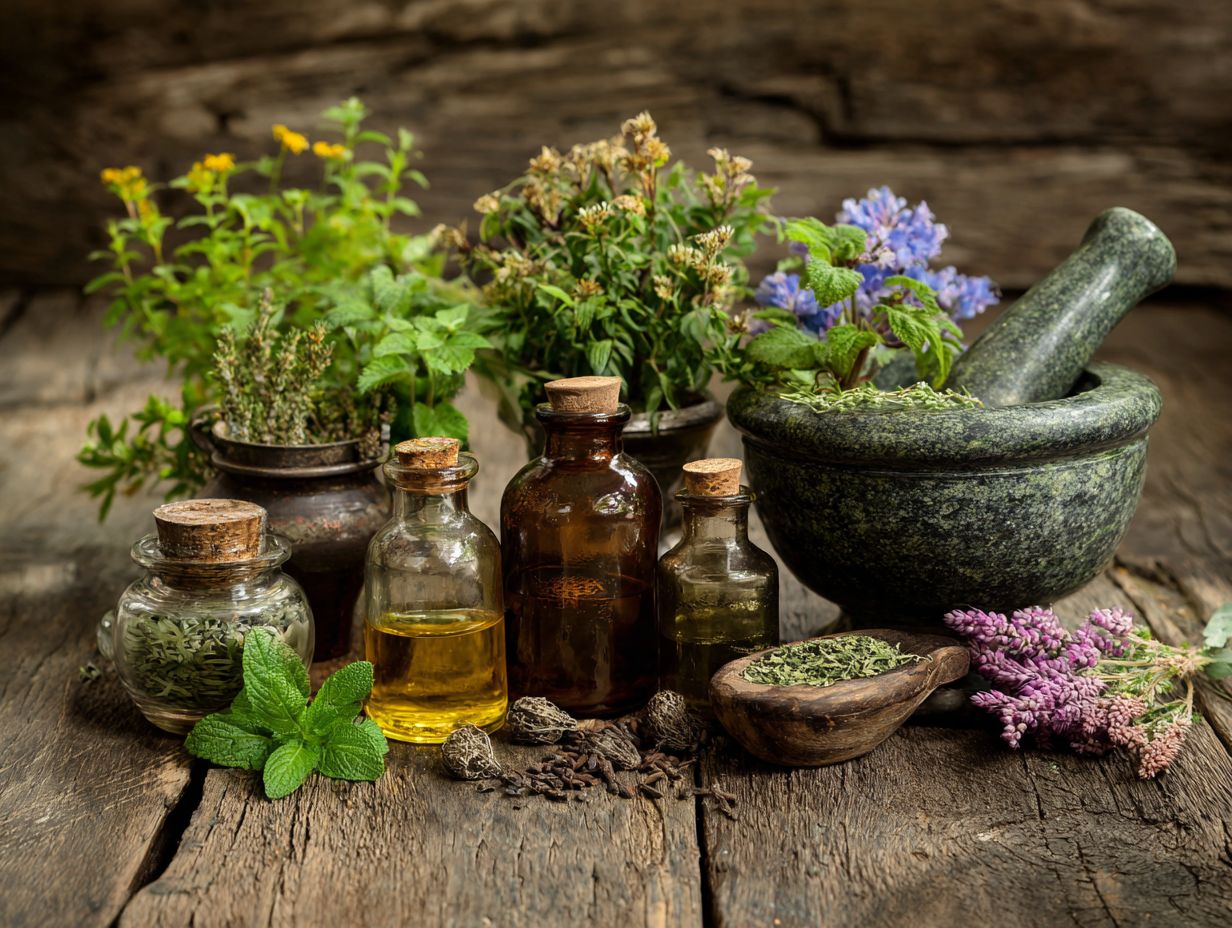
The method used to prepare herbal remedies such as teas, tinctures, and capsules influences their strength and effectiveness, so it’s important to make them properly.
To maximize the benefits of herbs, consider these common preparation methods:
- Teas: Steep dried herbs in hot water for 10-15 minutes. Use about one teaspoon of herbs per cup for a potent brew.
- Tinctures Let herbs soak in alcohol or glycerin for 4-6 weeks, and shake the container each day. This method extracts a broader range of active compounds.
- Capsules: Fill gelatin or vegan capsules with powdered herbs for convenience and dosage control. This method is ideal for those averse to the taste of herbs.
Each method has unique benefits affecting absorption and efficacy, so choose based on your health goals.
Considerations When Using Herbal Medicine
Herbal medicine can be helpful, but it is important to be aware of possible side effects and how it might interact with regular treatments to use it safely. For further understanding, consider reading about the risks and side effects of acupuncture as they share similarities with herbal medicine concerns.
Potential Side Effects
Certain herbs can cause side effects, such as Ginseng potentially inducing insomnia or St. John’s Wort leading to increased sensitivity to sunlight, underscoring the need for caution.
Watching for side effects is important, especially when beginning a new herbal routine. For instance, keep a daily journal noting any changes in mood, sleep patterns, or physical health.
If you experience headaches after using Echinacea or have stomach problems from Garlic, think about talking to a doctor.
The National Center for Complementary and Integrative Health suggests discussing herbal use with a doctor, especially if you’re on medications, to avoid harmful interactions. Always prioritize safety and make careful choices when including herbs in your routine.
Interactions with Conventional Medicine
Herbal medicines can interact with conventional drugs, such as Ginkgo biloba affecting anticoagulant medications, highlighting the importance of consulting healthcare providers.
For instance, St. John’s Wort can reduce the effectiveness of hormonal contraceptives by increasing liver enzyme activity, potentially leading to unintended pregnancies.
Similarly, garlic supplements might interact with anticoagulants like warfarin, enhancing bleeding risks.
Talk to your doctor about any herbal treatments you are considering. They can give advice based on your medications and health conditions.
Keeping an updated list of all supplements you take can facilitate these discussions, ensuring safer healthcare decisions.
Quality and Sourcing of Herbs
It’s important to verify that herbs are authentic and properly sourced, as there are fake medicines in the market that can lead to serious health issues.
To identify high-quality herbal products, look for products with certifications such as the Traditional Herbal Registration (THR) mark, indicating regulatory compliance.
Consider sourcing from reputable brands that provide transparent information about their cultivation practices. The American Herbal Products Association (AHPA) provides directories of certified suppliers.
It’s good to read product reviews and check testing results from groups like ConsumerLab to make sure the product is effective and safe.
These steps will help you make wise decisions in a complicated market.
Combining Herbal Medicine with Other Natural Health Methods
Using herbal medicine along with other health practices can improve your overall wellness and help with recovery.
Complementary Therapies
Techniques such as acupuncture and yoga can work well with herbal treatments, providing different types of support to improve health results and patient satisfaction.
For example, combining acupuncture with St. John’s Wort can alleviate symptoms of depression more effectively than either treatment alone.
Patients say they feel better overall when they do yoga while also using valerian root for sleep problems.
This method considers physical and mental health, leading to better results.
Users have shared testimonials about feeling less anxious and more relaxed when these therapies are used together, showing the positive effects on body, mind, and herbal support.
Creating a Personalized Health Plan
Creating a custom health plan that includes herbal medicine helps people manage their health and address their health problems effectively.
Begin by assessing your current lifestyle and medical history. Create a worksheet with sections for daily habits, existing health conditions, and dietary preferences.
Then, research herbal remedies that address your health concerns; for instance, use turmeric for inflammation or ginger for digestive issues. Ask a trained herbalist for advice on how to customize these treatments for you.
Create a regular schedule-like using alerts to take herbs-and monitor your progress over time to keep your health plan moving forward.
Research and Evidence on Herbal Medicine
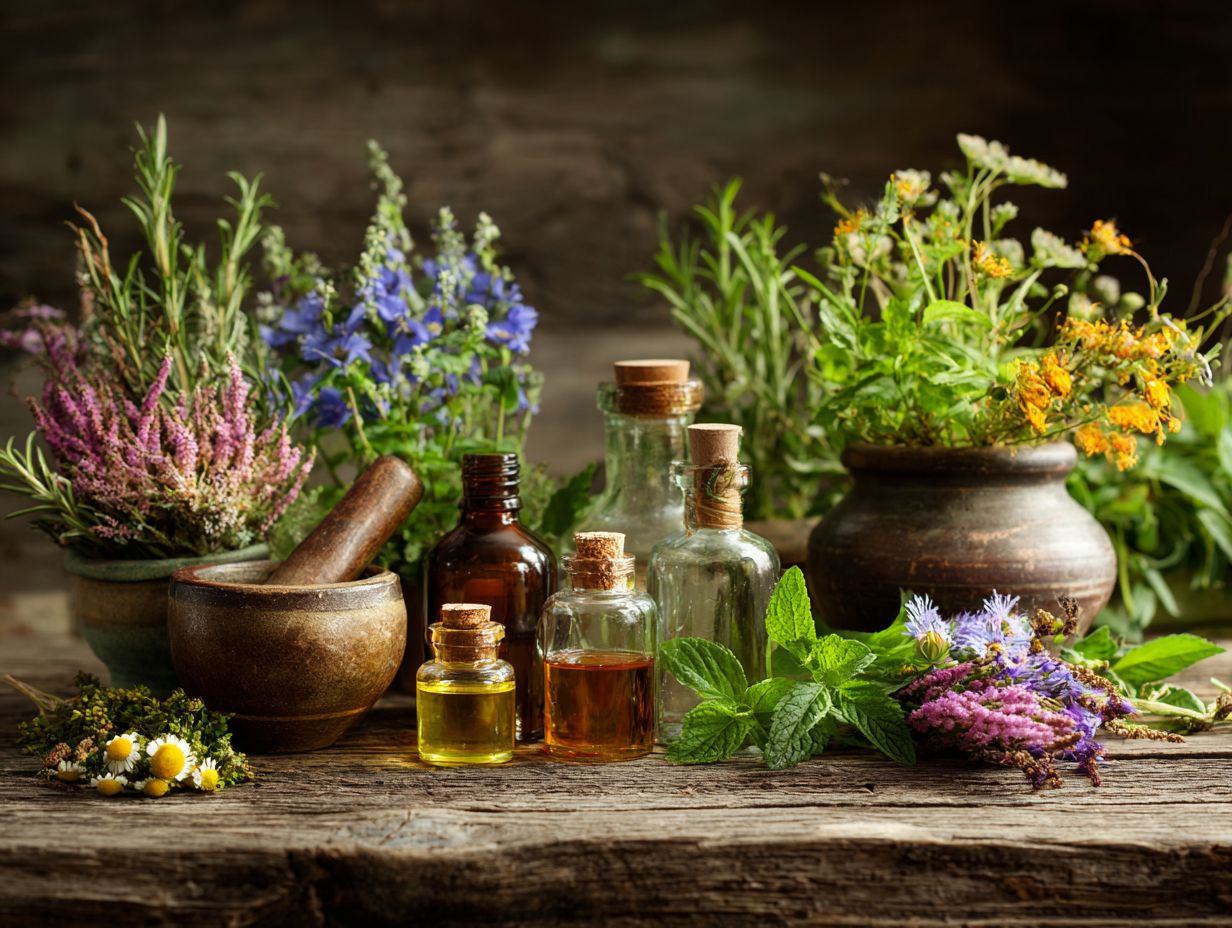
Studies on herbal medicine are growing, offering useful information about how well it works and showing it as a trustworthy option in healthcare.
Current Studies and Findings
Recent studies indicate that herbal remedies like Turmeric and Ginger show promise in reducing inflammation and improving gut health, reinforcing their place in treatment protocols.
A 2020 study published in the Journal of Medicinal Food found that curcumin, the active compound in turmeric, significantly reduced markers of inflammation in arthritis patients.
Similarly, research from the National Institutes of Health demonstrated that ginger can alleviate gastrointestinal discomfort, promoting healthy digestion.
To make the most of these herbs, mix turmeric powder into smoothies or have ginger tea daily.
For more information, look at articles from the Journal of Nutrition and the Journal of Ethnopharmacology to learn about their health benefits in detail.
Challenges in Research
Although research shows promising results, studies on herbal medicine encounter difficulties like differences in herb makeup and the requirement for stricter clinical testing.
Standardizing herbal products is important; researchers need to guarantee uniform quality and effectiveness. One actionable step is to implement guidelines like those from the World Health Organization, which emphasize establishing quality control measures.
Talking to patients can reveal their feelings about their experiences and their opinions on how things work. Working together with traditional medicine can help close gaps in knowledge.
Ongoing research is necessary to confirm health benefits and to offer consumers safe and effective choices.
**Prospects for Herbal Medicine in Overall Wellbeing**
Research is showing that herbal medicine works well, which may lead to more people choosing natural treatments.
This trend is evidenced by the increasing integration of herbal remedies in clinical settings. For example, turmeric is becoming popular for helping reduce inflammation, and ginseng is being studied for benefits to the immune system.
Clinical databases such as PubMed and Cochrane Library offer detailed studies that show successful herbal treatments.
As rules change, more standardized herbal products might enter the market. This could allow professionals to use them alongside traditional treatments, leading to a more complete approach to health.
Frequently Asked Questions
What is herbal medicine and how does it connect to overall health?
Herbal medicine is the practice of using natural plant-based remedies to promote overall health and well-being. It is an important part of complete health, which looks after the entire person – mind, body, and spirit – instead of only addressing specific symptoms.
What are the benefits of using herbal medicine in a complete health plan?
Herbal medicine offers many benefits for overall health, such as supporting natural recovery, strengthening the immune system, and easing stress and anxiety. It also helps to improve overall physical, mental, and emotional balance.
What are some common types of herbal medicine used in natural health care?
Some typical types of herbal treatments used in general health practices include herbal teas, liquid extracts, and capsules. Other popular forms include essential oils, herbal ointments and creams, and herbal supplements.
What factors should be considered when using herbal medicine in a complete health plan?
Talk to a trained herbalist or healthcare provider before adding herbal medicine to your overall health plan. They can help determine the right herbs and dosages for individual needs and possible interactions with medications.
Can herbal medicine be used as a standalone treatment for health conditions?
While herbal medicine can be effective in treating certain health conditions, it is not meant to replace traditional medical care. It should be used alongside other complete health practices.
Are there possible side effects or dangers when using herbal medicine in natural health care?
Like any form of treatment, there are potential risks and side effects associated with herbal medicine. It is important to research and understand the potential risks, as well as consult with a healthcare professional before use.

Sheetal Sharda has a background in CS. She got an interest in Holistic living back in 2018, and has since started exploring more into Naturapathy, Holistic Living, Yoga, and more. She got inspired to start SereneClinics to help people find reliable centers across the world.
